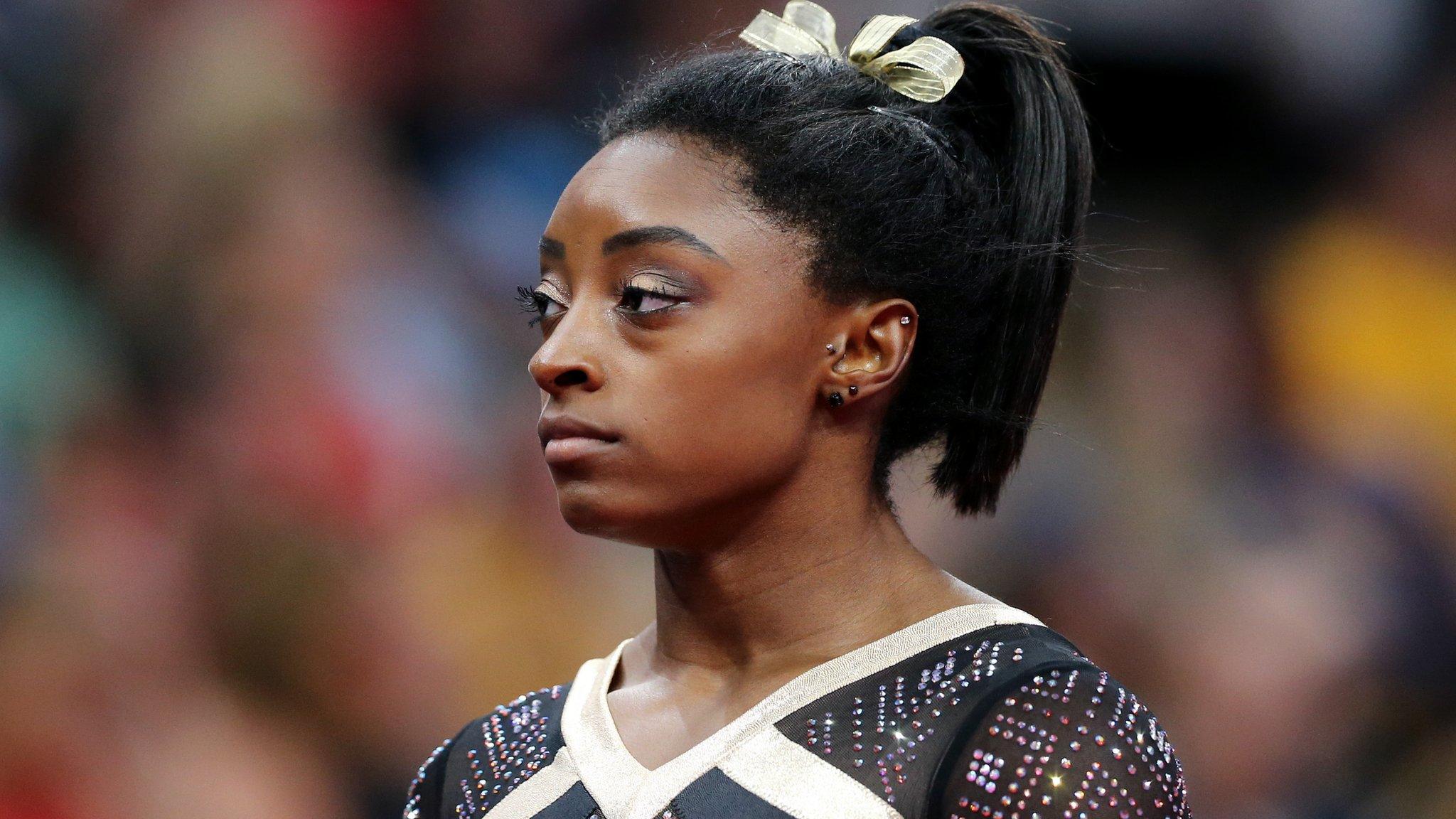Australian gymnastics: Former athletes speak out on 'abuse' culture
- Published
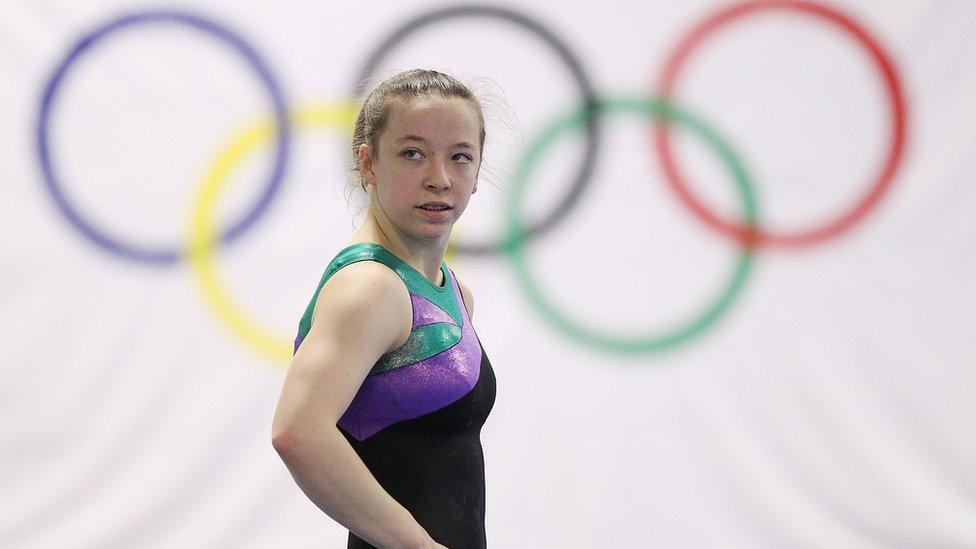
Former top gymnast Mary-Anne Monckton criticised an "insidious" culture
Dozens of Australia's former top gymnasts have spoken out to allege instances of mental and physical abuse within the nation's elite programme.
In stories shared online, many argued that coaches normalised a "toxic" environment.
Gymnastics Australia has acknowledged the allegations, saying it wishes to improve the sport's culture.
It follows a similar reckoning for the sport in the US and UK, where an inquiry has been launched.
Many of the Australian gymnasts said they had been motivated to speak up following the release of a Netflix documentary about the cover-up of sexual abuse within the USA Gymnastics team.
The case of Larry Nassar, the US team doctor, gained global attention following accusations from top Olympians. He was jailed in 2018 for molesting hundreds of young gymnasts.
What are the allegations in Australia?
Though none have alleged sexual abuse, generations of former gymnasts have posted publicly about damaging experiences. Their allegations include:
Pressure over their weight and incidents of food deprivation; some detailed experiences with bulimia
Pressure to train and perform through injuries such as broken bones
Being coerced to perform stunts beyond their ability
Widespread violations of adult-child supervision guidelines
A "toxic" environment of criticism and negativity
Chloe Gilliland, a gold medallist at the 2006 Commonwealth Games, said she had felt depressed and anxious at her "peak", and left the sport for her own wellbeing when she was 17.
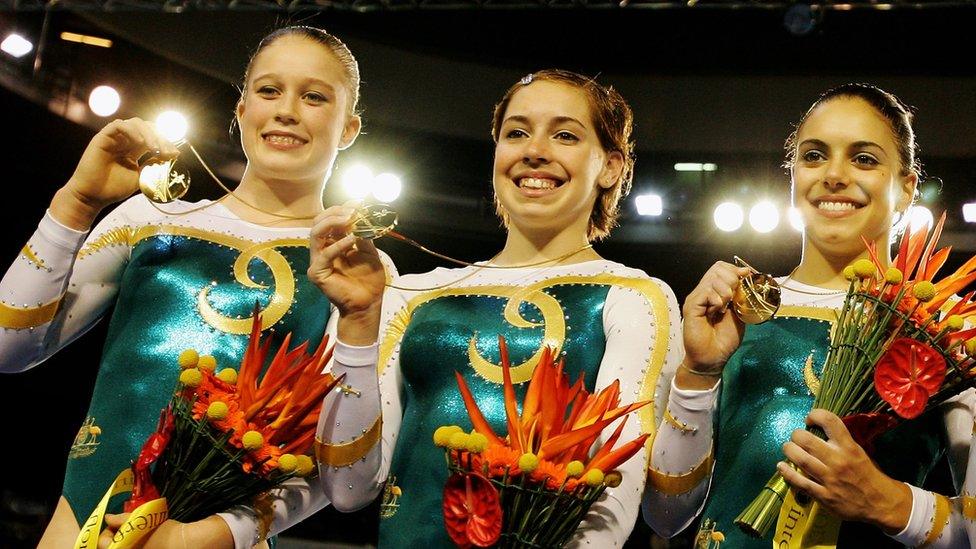
Chloe Gilliland (centre) said she used to starve herself to meet her coaches' weight goals
She said was regularly insulted by her coaches, called stupid and overweight, and isolated from her teammates. She added she had suicidal thoughts.
Olivia Vivian, who began in the sport when she was nine, said she learnt as a child to hide experiences from her parents.
She represented Australia at the 2008 Olympics but after reaching that level became "a broken athlete and a broken person," she wrote on Instagram.
She said she only rebuilt her love for the sport after moving to the US, where she found a "positive and supportive environment".

Why have they spoken out?
Many said they wished to change the environment for other children and teenagers currently in the sport.
"I am scared to share my story, but at some point, someone has to stand up for the athletes," said Mary-Anne Monckton, who won two silver medals at the 2014 Commonwealth Games.
"The abuse (physical, mental and emotional) needs to stop, or at least be stamped out of our sport," she said.
Many also alleged that some adults in the programme were complicit in their silence.
What has Gymnastics Australia said?
The sport's local governing body said it had "zero tolerance to any form of abuse in our sport" and was committed to changing its culture.
Chief executive Kitty Chiller said in a statemen, externalt: "We acknowledge and applaud those who have spoken up - their courage and their voice."
She did not respond to specific allegations, but said a complaints procedure had been established. There were also "listening groups" to hear general concerns, she added.
"I want you to know that we are here to listen. And we are here to act," she said.
- Attribution
- Published16 July 2020
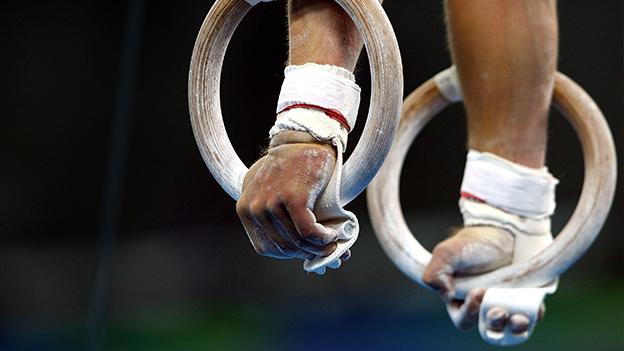
- Attribution
- Published10 July 2020

- Attribution
- Published24 June 2020
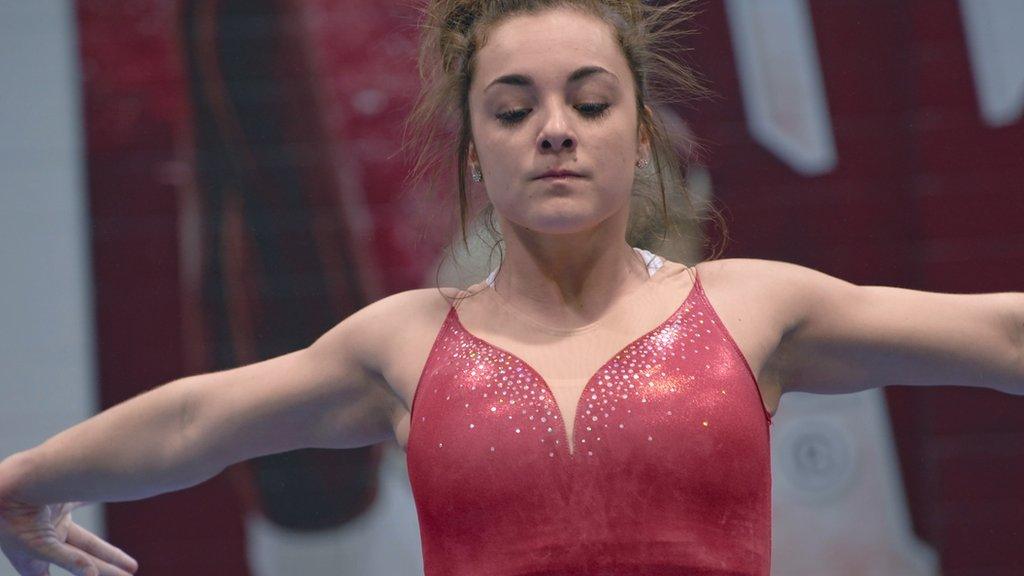
- Attribution
- Published10 October 2018
